Life
-
 Brain
BrainKids use more of the brain than adults do to process language
The brain continues to grow and mature throughout childhood. One big change occurs in which parts of the brain turn on as someone processes language.
-
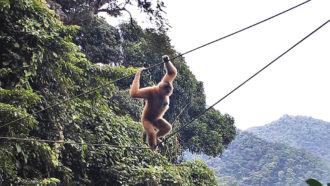 Animals
AnimalsAnalyze This: Ropes restore a gibbon highway through a rainforest
When endangered Hainan gibbons started making risky leaps across an area mowed down by a landslide, researchers provided them a rope bridge.
-
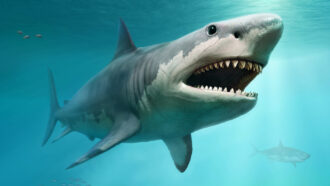 Animals
AnimalsAttack of the inner-cannibal mega-shark
The outsized megalodon was a fierce terror that chewed its way across the oceans. It learned to kill even before it was born.
-
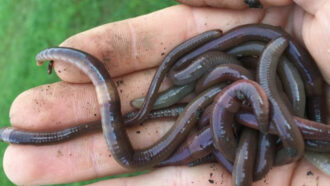 Environment
EnvironmentJumping ‘snake worms’ are invading U.S. forests
These bad-news invaders are spreading across the United States. As they turn forest debris into bare ground, soils and ecosystems are changing.
By Megan Sever -
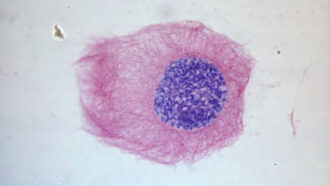 Microbes
MicrobesScientists Say: Nucleus
Nucleus comes from the Latin term “nuc,” meaning nut or kernel. In science there are lots of nuclei. Every one of them is the center of something.
-
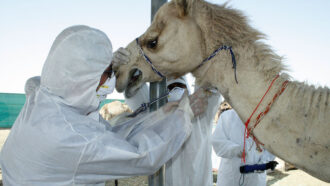 Health & Medicine
Health & MedicineWhen physicians and veterinarians team up, all species benefit
When doctors for people and those for animals share their expertise, they can discover new ways to take better medical care of all species.
By Liz Devitt -
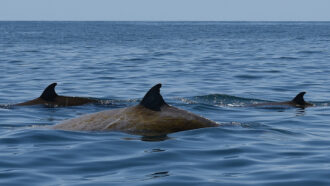 Animals
AnimalsA whale’s nearly four-hour-long dive sets a new record
Cuvier’s beaked whales may rely on large stores of oxygen, a slow metabolism and the ability to tolerate lactic acid to go for hours without surfacing for air.
-
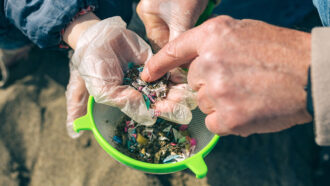 Environment
EnvironmentPolluting microplastics harm both animals and ecosystems
Researchers are beginning to uncover the real-world impacts of polluting microplastic bits on animals and the ecosystems they inhabit.
-
 Health & Medicine
Health & MedicineMany student athletes face risk of concussions that heal slowly
High school girls and those with a history of concussions appear to take longest to recover.
-
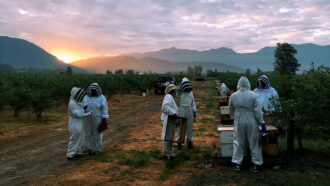 Animals
AnimalsLearning what stresses queen bees could save their hives
Beehives often die off after the queen gets too stressed to make enough babies. New tests could identify what stressed her — and point to solutions.
-
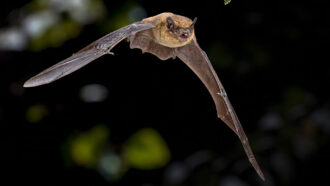 Animals
AnimalsHere’s what bats ‘see’ when they explore the world with sound
High-speed cameras, fancy microphones and slick software are helping scientists get the best look yet at what bats perceive through echolocation.
-
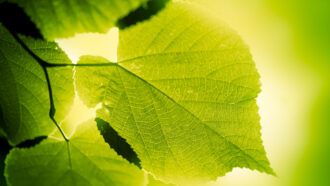 Plants
PlantsExplainer: How photosynthesis works
Plants can take in light, water and carbon dioxide, and send out sugar and oxygen. Here’s how it works.